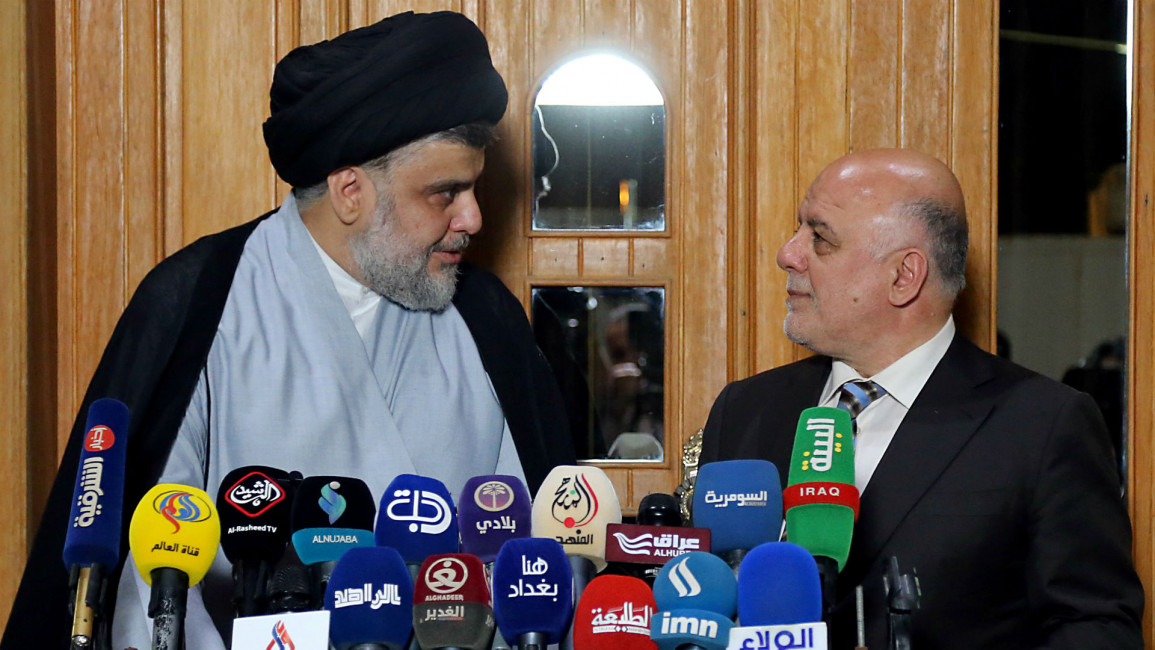Iraq's Sadr, PM Abadi form bloc, resolving political deadlock
Iraq's parliament is convening its first session since it was elected in May, after nationalist Shia cleric Moqtada Sadr agreed to form the largest parliamentary bloc with outgoing prime minister Haider al-Abadi.
Both the Iranian and American ambassadors to Iraq are present at the session, according to The New Arab's Arabic-language service.
An Iraqi official told The New Arab's Arabic-language service on Sunday that Sadr and outgoing Prime Minister Haider al-Abadi have formed a bloc that includes 16 political groupings.
The official said the bloc is made up of over 170 lawmakers from a wide range of religious and ethnic groups - more than half of the 329 lawmakers elected in legislative polls.
The Sadr-Abadi alliance will face off during Monday's inaugural parliamentary session against a bloc led by former paramilitary chief Hadi al-Ameri and former premier Nouri al-Maliki.
Iraq's political system is designed to ensure that no one person or party can dominate in order to avoid any return of a dictatorship following the ousting of strongman Saddam Hussein.
Abadi, backed by the West, who came in third in the elections with 42 seats, could possibly remain in his post.
On Monday, parliament must elect a speaker - traditionally a member of Iraq's Sunni Muslim community - as well two deputy speakers.
Parliamentarians will then have 30 days to elect a new president for the country, a position that goes to a member of the Kurdish minority with at least two-thirds of the vote.
Kurdish parties have yet to officially announce candidates for the top but largely symbolic post of president.
The new president will then have 15 days to task the biggest parliamentary bloc to form a new government.
The Sadr-Abadi coalition accord also includes Sadr's alliance with communists which won the most seats in the election (54 seats).
It also includes the Wataniya list of outgoing secular vice president Iyad Allawi (21 seats) as a signatory along with several Sunni lists as well as Shia cleric Ammar al-Hakim's al-Hikma list (19 seats).



